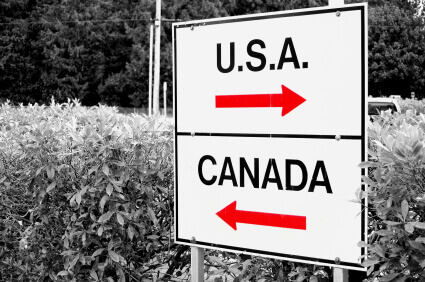
New York Times, Please Don’t Interfere: This ‘Fox Hunt’ Has Nothing To Do with Special Agents
This is just a small mix-up. The big error with this article lies in the lack of effort by the U.S. in cooperating with Chinese anti-corruption efforts. American media have falsely made Chinese Ministry of Public Security forces out to be “secret special agents,” and thus changed the nature of this debate. By framing it this way, the American media have thus given the moral high ground to corrupt officials living in the United States.
The New York Times article has attracted some questionable comments, such as those by an English academic with a Chinese surname, who said: “The [Communist] Party believes if you’re of Chinese ancestry, then you’re Chinese anyway, and if you don’t behave like one, you’re a traitor.” This kind of talk is nonsensical; it has no meaning and cannot be explained.
The Ministry of Public Security’s fox hunt is aimed at corrupt officials running all over the world, not just North America. Besides America, no other country has come out and complained against China or accused China of placing “special agents” in its country. Interpol, the second largest international institution, has even given approval of Chinese measures, and issued “red notices” supporting the Chinese fox hunt. That is the kind of recognition Chinese efforts deserve.
America is considered by many to be the defender of democracy and rule of law, and to have a zero-tolerance policy toward corruption. However, America has taken in many corrupt Chinese officials and become the prime destination for Chinese officials fleeing the mainland; it is even deemed a “temple” by these officials. For example, take the suspect wanted for financial crime, Ling Wancheng, who has taken on a new name and lives in a luxurious 700-square-meter apartment in the U.S. (approximately 7,535 square feet). Shouldn’t the U.S. investigate and cooperate with China on this issue?
Washington pays lip service to supporting the rule of law in China, but when it comes to helping Chinese anti-corruption efforts, it has done little to help. Even over many years, the U.S. has only helped to repatriate a few “sesame-seed level” suspects. America and China signed several agreements during the U.S.-China Strategic and Economic Dialogue, in which the U.S. agreed to support Chinese anti-corruption efforts. Obama has also previously agreed to support those efforts, but the U.S. has been slow to take any action, playing word games to avoid action and putting these issues on the backburner.
Many Chinese are coming to believe that the U.S. has little intention to aid in China’s anti-corruption efforts. Some American elites would perhaps like to see the Chinese continue to face the problem of officials fleeing abroad. Some even think that Washington could use this to its advantage in the future. American media have continued to leak facts, saying that Ling Wancheng could possess high-level intelligence, implying that America could make use of it.
The U.S. has relied on the advantages of its control of the discourse to create confusion, and to justify its position against Chinese efforts. The New York Times has helped provide cover for American officials, as its article has been able to mislead many people. However, Chinese society is still strong, and understands what kind of people these escaping officials are. When all is said and done, these corrupt officials are still living the in U.S. freely and with their ill-gotten funds; this is the indisputable reality.
This isn’t really an issue of “special agents.” The Chinese Ministry of Public Security hasn’t “infiltrated” America, and certainly isn’t enforcing its own laws on American land. Chinese authorities have entered America legally and have pursued Chinese officials according to American law and legal procedure. Chinese authorities have sought out cooperation with American officials. All of this deserves to be highlighted. However, it is American special agents and authorities who have carried out operations and enforced their laws in all corners of the globe. American media have gone to great lengths to describe the Chinese efforts as being like the all-seeing methods of America’s FBI.
We should ask The New York Times to not interrupt these efforts, to not cause a stir and bring unwarranted negative attention to this issue. Because the U.S. and China do not have an extradition treaty, America has a way of getting out of cooperating with China’s anti-corruption efforts. But as long as there is sincerity in the agreements to help China fight corruption, barriers and other issues can be overcome.


